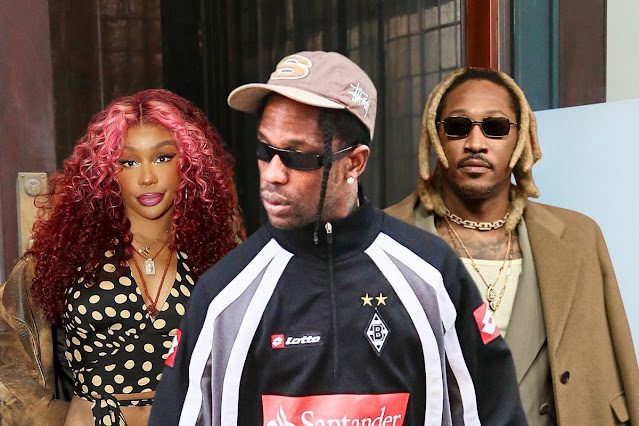Travis Scott is countersuing singer-songwriter Victory Boyd and firing back at her lawsuit over his track “Telekinesis” by claiming that it didn’t hold up in the first place because, he says, she never held the rights to begin with.
Boyd, who filed her $4 million lawsuit in January 2025, alleged that Scott, as well as SZA, Future, and an a laundry list of music biz heavyweights, from Epic Records to Sony Music to a luxury Swiss watch had ripped off lyrics and melodies from her previously unreleased 2019 jam “Like the Way It Sounds.” But Scott’s team is now emphasizing what they claim is a fatal weakness in her case: She didn’t write the song by herself, they allege.
Check Out this Article: Fat Joe’s ‘God Crakk Kim’ Moment Sparks Five Percent Nation Buzz
Central to Scott’s defense is Boyd’s admission that Kanye West contributed to making LTWIS. Boyd’s court filing states that West made contributions to the song’s chords and beats, meaning, according to Scott’s legal team, that she isn’t in a position to assert full ownership. And here’s the second jab: To sue for copyright infringement, you need to own the thing you’re claiming was stolen.
Scott’s attorneys insist Boyd’s filing forms for the song paint two different narratives. In some versions, she is the sole author of both music and lyrics; in another, only after the lawsuit was filed, she is listed as the author of the lyrics only. Now the defense is challenging both registrations, arguing that at least one of them is incorrect and the other was filed too late to allow for damages for past use.
To further complicate the argument, Boyd claims she shared the original track with West as early as 2019 before he recorded his version, titled “Ultrasounds”. She thinks Scott had access to that demo and borrowed from it for “Telekinesis,” which appeared on his album Utopia. And while Boyd’s name appears as a co-writer online, she insists that she never gave the final stamp of approval for the song’s release, a central point in her gripe.
Scott’s team, however, is playing no-nonsense. They say that if West helped to make the demo, then he was within his rights to grant clearance to use it, and Scott and other parties might not even be in the wrong, legally speaking.
Now, the court will decide whether the case will proceed or be dismissed. A decision on the motion to dismiss is due later this year, and regardless of the outcome, it’s clear that this copyright clash is about much more than just credits, but about who truly owns the sound of the song.












0 Comments